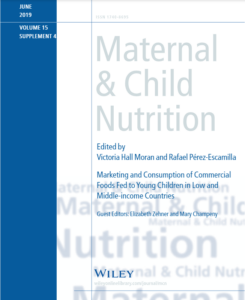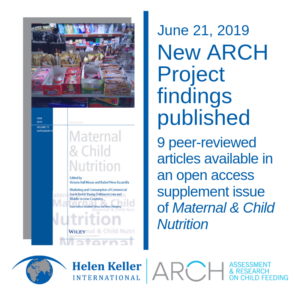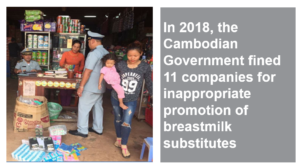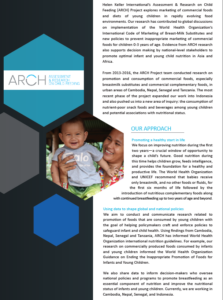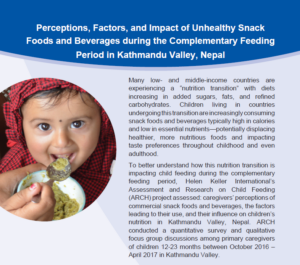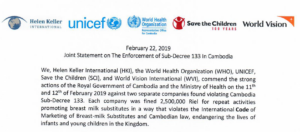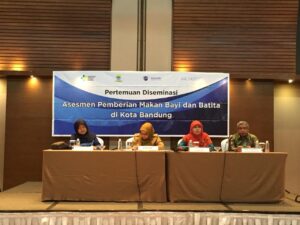Resource: Predictors of breast milk substitute feeding among newborns in delivery facilities in urban Cambodia and Nepal
This article was published in the Maternal & Child Nutrition Supplement: Marketing and Consumption of Commercial Foods Fed to Young Children in Low and Middle‐income Countries. Access abstract in Khmer and French. Abstract: Introducing breast milk substitutes (BMS) in the first days after birth can increase infant morbidity and reduce duration and exclusivity of breastfeeding.…

